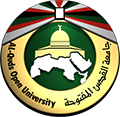Overview
Public Administration is considered one of the main pillars of building the administrative system in a state. It is the government's tool in achieving state policies issued by the three authorities: the legislative, the executive and the judiciary. This what makes Public Administration a vital component in nation building and development.
The comprehensiveness of the state’s functions is increasing with the change of the role of the government, which kept many jobs and entered into contracts to perform new ones, while maintaining social, economic, and health improvement and development in different areas, which has expanded the state's obligations and burdens.
The establishment of projects is no longer limited to private sector. Rather, the state started to establish its own projects to serve areas that need more attention, development and growth, in order to raise the standard of living and the progress of the state itself. Consequently, the new roles of government and the jobs that these roles have assumed require qualified people who are able to use and employ modern administrative methods in serving the society.
Building the state and its various institutions requires administrative competencies capable of improving the method of administering available capital based on sound scientific planning foundations that link inputs to outputs with outcomes, better set goals, rationalize budgets, control the efficacy of foreign assistance, and improve monitoring and evaluation to ensure better results in the implementation process. Therefore, Providing Administration and Public Policy program that is linked to Palestinian context and simulates international developments in public administration may be part of the guarantees for building efficient and effective administrative bodies that serve the Palestinian community.
The Faculty of Administrative and Economic Sciences at Al-Quds Open University, through the specialization of Administration and Public Policy, seeks to provide the local market with competencies capable of working in the public sector and civil organizations amid the state building phase by equipping students and workers in the field of public service with skills, knowledge, and analytical tools including policy-making, analysis, international cooperation and management of non-governmental organizations. This allows graduates to resume their higher studies and increases their contribution to improving the services provided in their local communities.
The Administration and Public Policy program aims to enhance students' knowledge and skills in the fields of public administration, analysis and policy-making and prepare them for distinguished positions in public service and non-governmental organizations. The program helps students to develop a comprehensive knowledge of core topics in the areas of public policy in general in order to achieve quality improvement in public sector inputs and services.
- Prepare specialized human resources to work in the government sector capable of managing public and non-governmental institutions.
- Develop personnel capable of improving the performance of government and non-government state institutions while also promoting national, and social development policies to ensure long-term sustainability. Qualifying Graduates who are capable of leveraging computer infrastructure and technologies to increase the efficiency of government services.
- The development of the governmental agencies in the field of local and central government administration, public budgets and governmental policies.
- Provide consultations to state agencies and its various organizations to repel the problems they encounter in administrative work.
- Conduct field research and studies to address administrative challenges facing public sector institutions.
- Ministries and governmental institutions.
- National, charitable, local and municipal bodies
- Research departments in governmental and private institutions.
- The educational, health and health services departments in the central institutions and the governorate centers
- Human resources in governmental and private institutions and bodies.
- Consultants in public policies.


